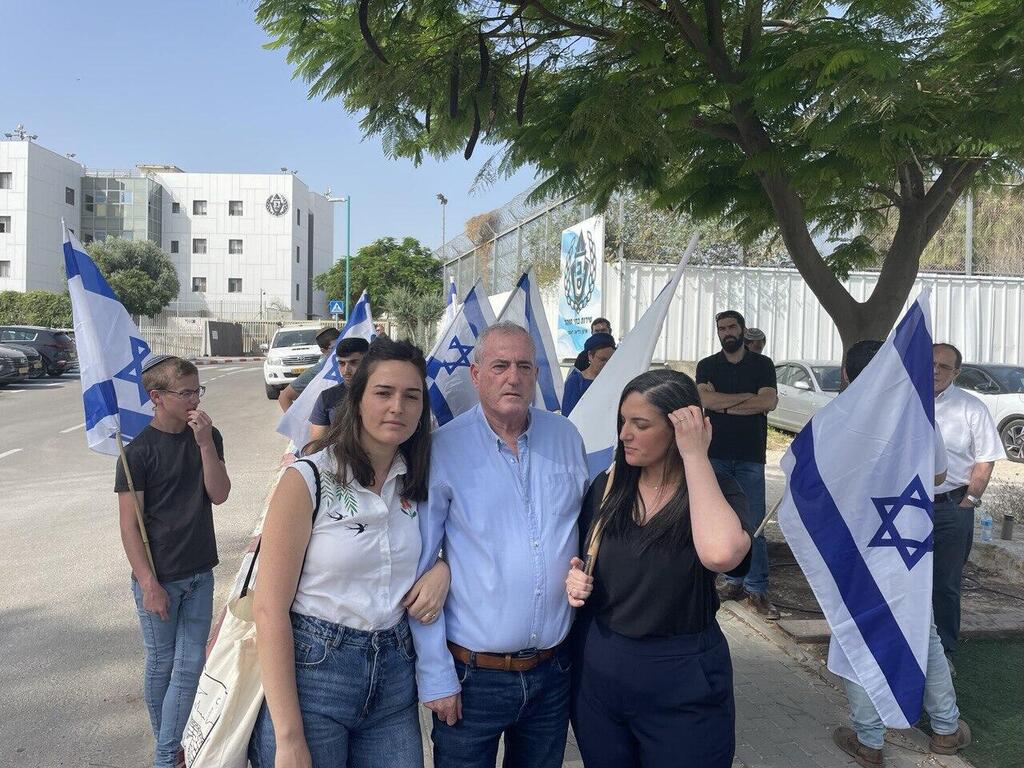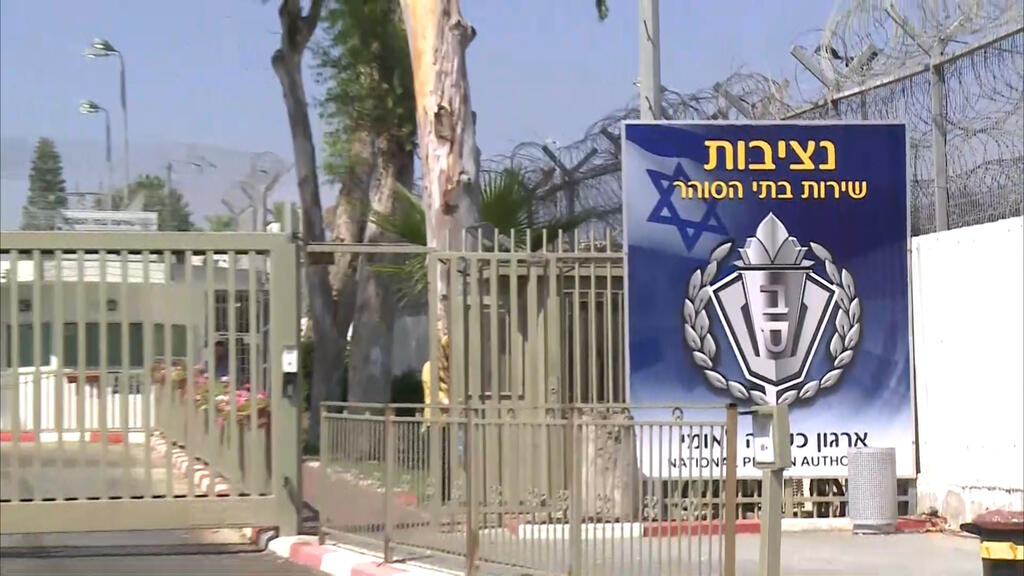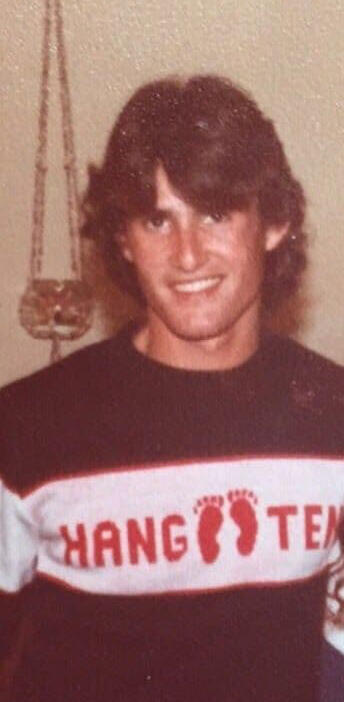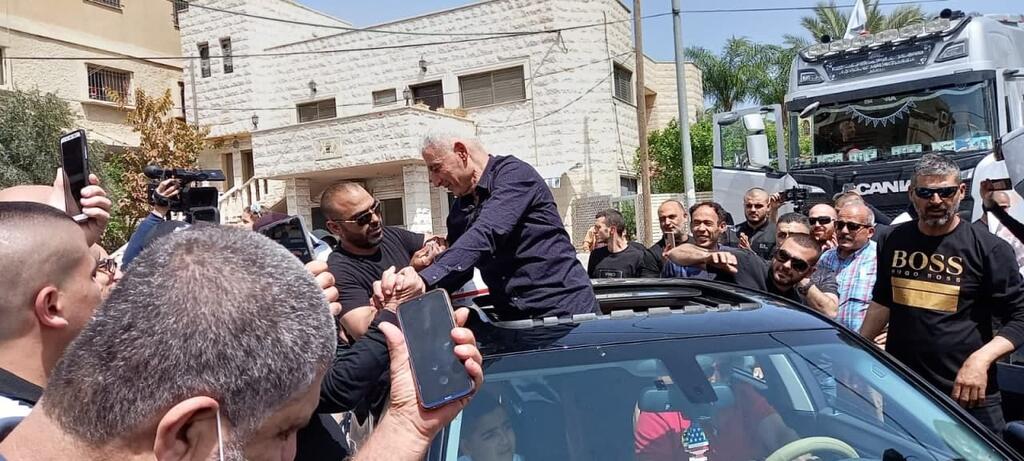Getting your Trinity Audio player ready...
The parole committee at Maasiyahu Prison in central Israel held a hearing on Wednesday morning to discuss the early release request of Arab-Israeli prisoner Walid Daka, one of the murderers of IDF soldier Moshe Tamam in 1984 who suffers from terminal cancer.
More stories:
Daka, 62, is hospitalized under security at Assaf Harofeh Medical Center in Tsirifin. According to sources in the Israel Prison Service, Daka is terminally ill – and wants to die close to his family members outside of prison.
5 View gallery
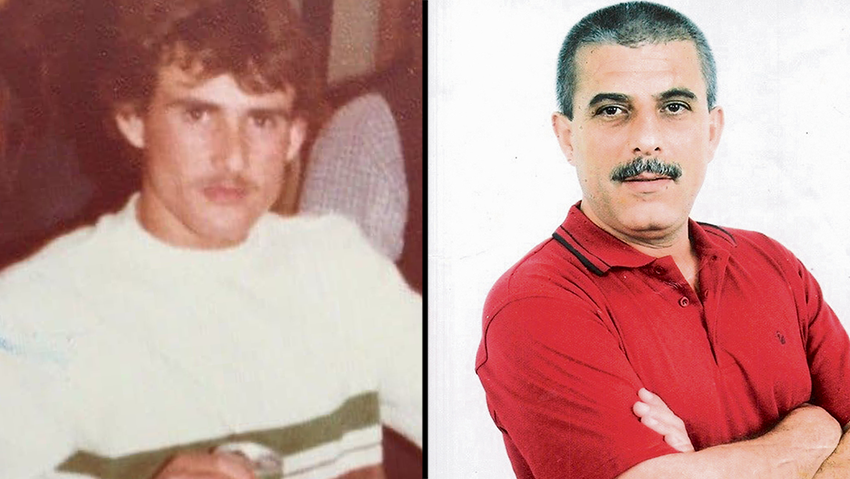

Slain IDF soldier Moshe Tamam and his killer Walid Daka
(Photo: Courtesy of the family)
At the end of the hearing, which lasted several hours, the committee announced that it had decided to postpone the decision, following a dispute concerning its very authority to discuss the request.
The prosecutor's office has objected to a regular parole board discussing the case because it involves a security prisoner who was convicted of murdering a soldier on nationalistic grounds and, according to the anti-terrorism law, such a prisoner cannot appear before a regular parole board – but only before another committee known as the Life Prisoners Committee.
At the hearing, the position of the prosecutor's office was heard as well as the position of the victim's family members. In the end, the members of the Maasiyahu Prison committee postponed the decision by a week.
The members of the committee noted that Daka's request for early release "is supported by medical documents on behalf of the prisoner," as well as a medical certificate dated March 15 in which Dr. Dimitri Klotsky, chief medical officer at Israel's Prison Service, expressed his opinion that the prisoner has a malignancy is an actual danger to his life to a level of high risk, and his life expectancy is two years.
The certificate also states that the prisoner's clinical condition is extremely complex, thus, "his days are numbered and his life is in real danger."
The members of Tamam's family arrived at the prison in Ramla this morning to protest against the very holding of a hearing on the terrorist's request.
"Releasing a despicable murderer of a soldier just before the time allotted for his sentence is a reward for terrorism. Today there is a completely right-wing government and every one of them says that it has nothing to do with him. Why do we have to fight for the despicable murderer of my uncle to serve his full sentence," said Dr. Ortal Tamam, Moshe Tamam's niece.
A discussion is currently taking place to determine whether the committee has the authority to discuss the request, but a decision has not yet been made.
"I expect the members of the release committee to think about the moments when they abused my uncle until they murdered him in cold blood," said Ortal Tamam.
"The terrorist who murdered my uncle is not terminal, And, even if he was terminal – he deserves to take his last breaths in prison," she said.
In addition to the family, about 20 members of a high school yeshiva from Ramla and a number of civilians also came to protest.
The discussion was also held against the backdrop of warnings from the Gaza Strip, pointing to the escalation that broke out earlier this month following the death of the hunger-striking prisoner Khader Adnan, a member of the Islamic Jihad terror.
Although the current case is an Arab-Israeli citizen and not a Palestinian, Hamas warned of the "crime" of not releasing him, and the terrorist organization's spokesman, Abd Latif al-Kanou, said Tuesday night: "The insistence of the Zionist prison service to ignore the suffering of the prisoner Walid Daka, who suffers from cancer, and his life-threatening medical neglect, is a crime and blatant racist behavior of the occupation government.
We call on human rights and humanitarian institutions to take urgent action to protect our hero prisoners from the violations of the Zionist occupation, and to stop the policy of medical negligence practiced by the occupation."
Daka was accused of kidnapping and murdering IDF soldier Moshe Tamam and was sentenced to life imprisonment. In 2012, then-President Shimon Peres commuted his sentence to 37 years. He was later sentenced to two more years after he was caught in prison with a cell phone smuggled to him by former lawmaker Basel Ghattas, bringing his sentence to a total of 39 years.
"When he tortured and murdered in cold blood my uncle, who was only 19 years old, he did not think about his parents or his brothers," Ortal Tamam said.
According to her, a lawyer who happened to hear in one of the courtrooms that a parole board hearing was scheduled passed the information on to her. "If not for him, we would have heard about the discussion in the committee only after the fact. No one from the Prison Service or the prosecutor's office informed us," she said.
After the Prison Service and the Prosecutor's Office learned of Ortal Tamm's criticism, their representatives spoke with the family members of the murdered soldier and explained the procedure to them.
The Prison Service emphasized that they are not a party to Daka's request, which was submitted through his lawyer, Avigdor Feldman, in accordance with Section 7 of the Parole from Prison Law. Still, the soldier's niece says, "This is spitting in our face."
According to her: "The terminally ill person, no matter how he arrives at his home Baqa Al-Gharbiya, suddenly he will get a life. We realized that he is not as terminal as they try to portray him."
About two years ago, another terrorist involved in the kidnapping and murder of Moshe Tamam, the Arab-Israeli terrorist Rushdi Abu-Moch, was released from prison after serving 35 years in prison as part of a fixed life sentence. When he was released, he was welcomed with celebrations at his home in Baqa al-Gharbiyah, which caused outrage among Tamam's family members
Abu-Moch, along with Daka and several accomplices, joined the terrorist organization the Popular Front for the Liberation of Palestine in order to kidnap an Israeli soldier and transfer him to Syria to use it as a bargaining chip for the release of terrorists. However, during the event itself, the members of the squad decided to murder Tamam.
The abduction took place on August 6, 1984, when Tamam left his base to visit home. According to the indictment filed at the time, members of the squad picked him up at the Netanya interchange, kidnapped him and then murdered him in an olive grove near Jenin. The search for the killers of the soldier lasted more than a month, when they were caught and sentenced to life imprisonment. In 2012 then-President Shimon Peres decided to limit their punishment.
The criticism by the murdered soldier's niece is not limited to the parole board, but is directed toward the conduct of law enforcement officials throughout the years of the terrorist's imprisonment, including the decision to limit his sentence.
Ortal Tamam called Daka's reduced sentence "a reward for a terrorist murderer," and said that it was done "behind the backs of Moshe's parents and brothers, who only found out about it afterward."
According to her, Daka "is not a small prisoner – he is the leader of the security prisoners and manages the support for terrorism from within the prison. During all his years in prison, he lived in a camp. He wrote a play, managed to smuggle sperm out of the prison despite our warnings, smuggled a book he wrote and had his phones smuggled into prison."
Gilad Morag contributed to this story


